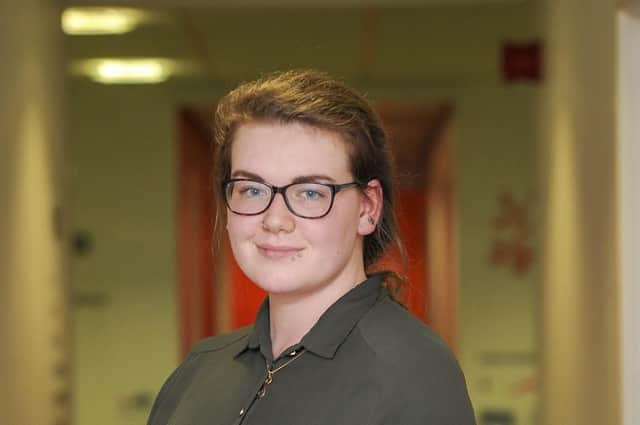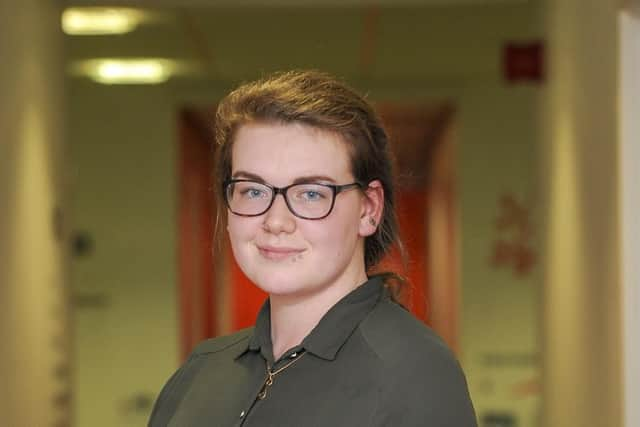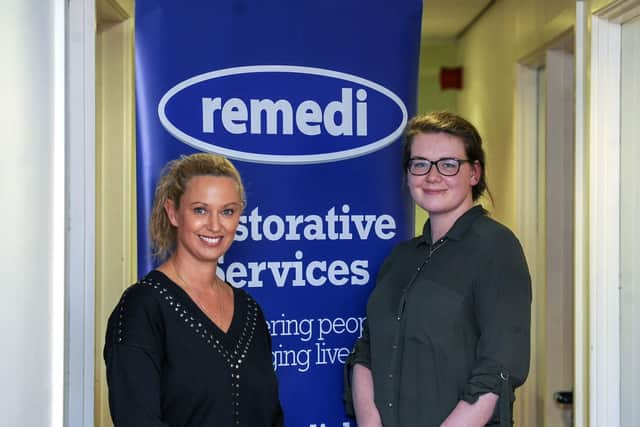'Meeting the man who burgled my Sheffield home cured my night terrors'


But as the initial fury subsided, it was replaced by a crippling fear which manifested in night terrors and sleep paralysis so severe she turned to drink as an escape.
Just when it seemed there would be no end to her personal torment, she received a phone call out of the blue which changed everything.


Advertisement
Hide AdAdvertisement
Hide AdIt was from the charity Remedi, inviting her to meet the man who had turned her home on Ecclesall Road inside out and in doing so turned her life upside down.
That meeting was part of a process called restorative justice, a voluntary arrangement to help offenders appreciate the true impact of their crimes and apologise, and to enable their victims to ask those nagging questions which need answering before they can move on.
Sarah, who is now 22 and working in the banking sector, was initially wary of meeting the man who had caused her such misery but figured things were so bad it couldn't make them any worse.


It turned out to be the best decision she had ever made.
'When I started talking to Remedi, I began thinking about what I'd been doing to myself,' she said.
Advertisement
Hide AdAdvertisement
Hide Ad'And when I met the offender, it really helped me get some closure on what had been a very dark chapter in my life.
'Almost immediately I started sleeping much better and stopped crying when I went to bed. It was like I became an adult again.
'It gave me back that control, which I felt had been taken away when our house was burgled, and made me feel so much better in myself.'
For Sarah, one of the biggest benefits was being able to put a name and a face to the intruder, whom she had built up in her mind as a '˜monster'.
Advertisement
Hide AdAdvertisement
Hide AdHer sleep paralysis had meant she would wake up and find herself unable to move, while her imagination worked overtime conjuring up ever more terrifying scenarios.
'Quite often I would picture someone standing over me, pinning me down and breathing in my ear, and I couldn't move or even open my eyes,' she said.
'Things were so bad I drank because it was the only way I could get to sleep, and I would often crawl into my flatmate's bed because I was too scared to be alone.
'I'd built up this literal monster in my head. I couldn't relate to the fact I'd been burgled by an actual human being until I met the man who did it.
Advertisement
Hide AdAdvertisement
Hide Ad'I was surprised to find a middle aged man who told me had children my age who were at university too.
'He said how much he would hate to see his daughter in the situation he put me in, and I could tell he felt such guilt and remorse.'
The meeting was arranged by Remedi once the offender had been sentenced - around a year after the burglary, which happened some two-and-a-half years ago -Â and it took place in the prison where he is still serving his time.
'He thanked me for coming and said he understood if I just wanted to swear at him and walk out,' said Sarah, who was accompanied by one of Remedi's restorative justice practitioners, Lizzie Smith.
Advertisement
Hide AdAdvertisement
Hide Ad'He apologised and asked not for forgiveness but whether I could move on from what had happened. It was an incredibly emotional meeting and it proved to be a real turning point.
'If anything, leaving there I felt sorry for him because I got to walk away and and he was sat in a stifling hot cell thinking about what he'd done.
'I don't really harbour any bad feelings towards him now. I've managed to get some closure and move on.'
Sarah had lots of questions for him, like why did he target their house, how did he get in and why did he take what he did '“ not just high value goods like games consoles and laptops, but a coat and a set of darts.
Advertisement
Hide AdAdvertisement
Hide AdHe told her how he had burgled the house to fund his drug habit and gained entry via a ground floor window which was left on the latch.
Everything he took, he explained, was either sold or thrown away, and he was sadly unable to help her trace the laptop which contained precious photos of her nephews she has lost forever.
He took the darts because they came in a fancy box which he thought might contain something valuable, she learned, and he took the coat to conceal the consoles when making his escape.
He was even able to pass on security tips, which he urged her to share with her follow students so they didn't make themselves easy targets.
Advertisement
Hide AdAdvertisement
Hide AdSome people who have been through restorative justice remain in touch, occasionally even becoming friends, and, while this was not the case with Sarah and the man who burgled her home, Remedi has offered to update them on each other's progress.
For Sarah, she wants to know he doesn't return to crime on his release from prison, while he wants the reassurance that Sarah is continuing to move on with her life and put what happened behind her.
In the six months to September this year, Remedi organised 12 face-to-face meetings between victims of crime and the culprits, and arranged indirect contact, often in the form of letters, in 66 other cases.
While the process is not for everyone, the charity says around half the victims it contacts proactively take up the offer.
Advertisement
Hide AdAdvertisement
Hide AdVictims and offenders can request to be put in touch too, though both parties must always agree to participate.
Sophie O'Reilly, Remedi's South Yorkshire team manager, says everyone's motivation is different.
'For both parties it's a very personal experience and what people want to get out of the process varies,' she explained.
'For victims, it might enable them to ask those burning questions which have been going round their heads and keeping them awake at night since it happened.
Advertisement
Hide AdAdvertisement
Hide Ad'It can be a chance for both parties to talk about the impact, and for the offender it's an opportunity to apologise and show their remorse.
'A lot of offenders say it's one of the hardest things they've ever done but that they found it really helpful.'
Sarah was speaking during Restorative Justice Week, which runs from November 18-25.
If you are a victim of crime and want to learn more about restorative justice, you can call 0800 561 1000 or visit www.restorativesouthyorkshire.co.uk.
